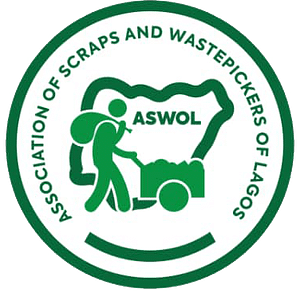Communique Issued at the Susty Marshalls Stakeholders Dialogue Held on the 23rd of November, 2023.
Background
The contributions of informal waste pickers to the circular economy in the centre of excellence can not be overemphasised. Through their activities, informal waste pickers play significant roles in this sector, through the recovery and resale of valuable materials from waste streams, thereby contributing to the reduction of recyclable materials in landfills and open dumpsites, and the overarching environmental pollution.
However, waste pickers in Nigeria face numerous challenges as a result of their informal status, including poor working conditions, poverty, stigmatisation, exposure to occupational health hazards, harassment, non-recognition by state actors, etc.
The valuable contributions of waste pickers in reducing waste at dumpsites and facilitating recycling and material reuse underscore the need for development of the provision of a more dignified work environment and labour protections that ensure the sustainability of their livelihoods without compromising their well-being.
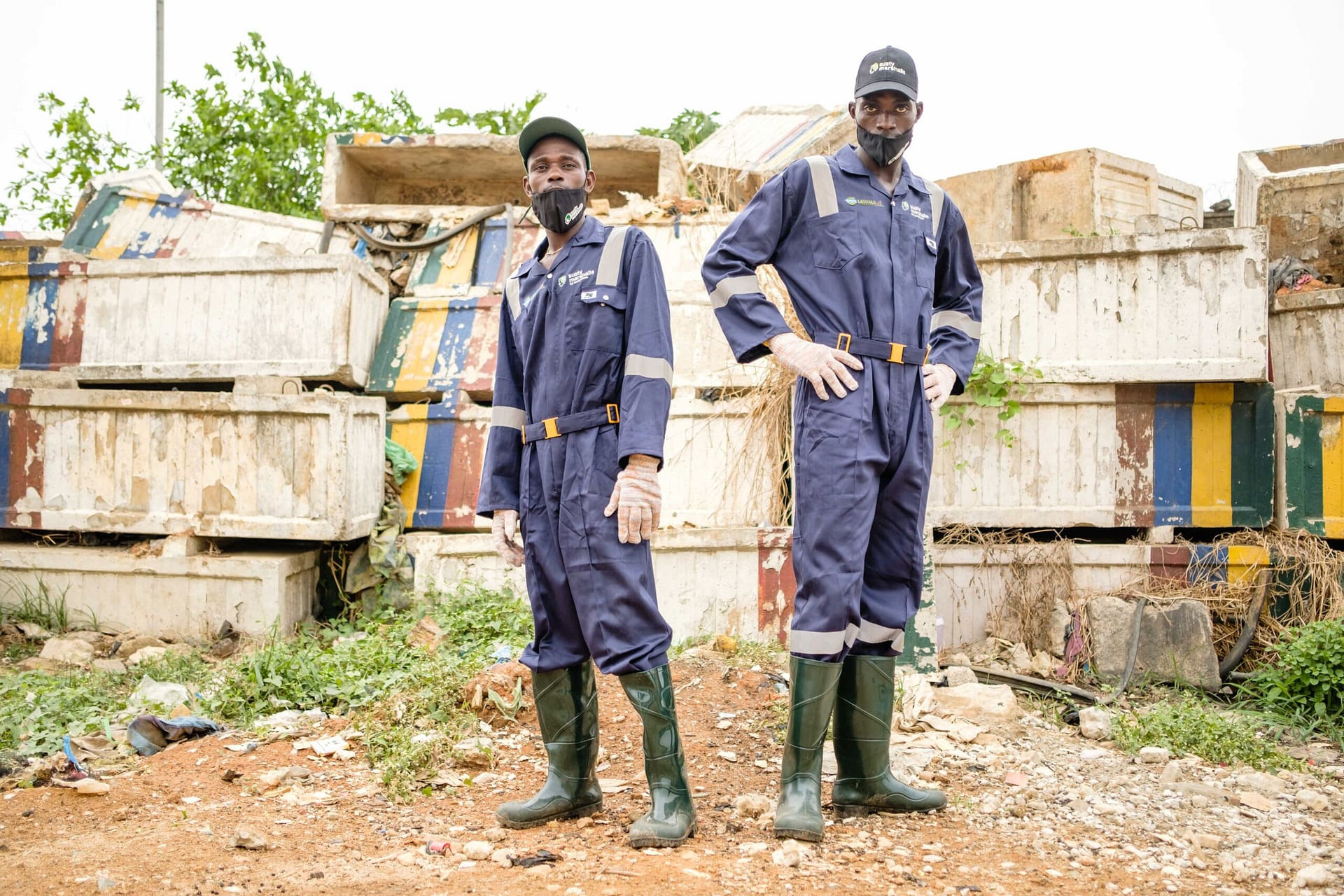
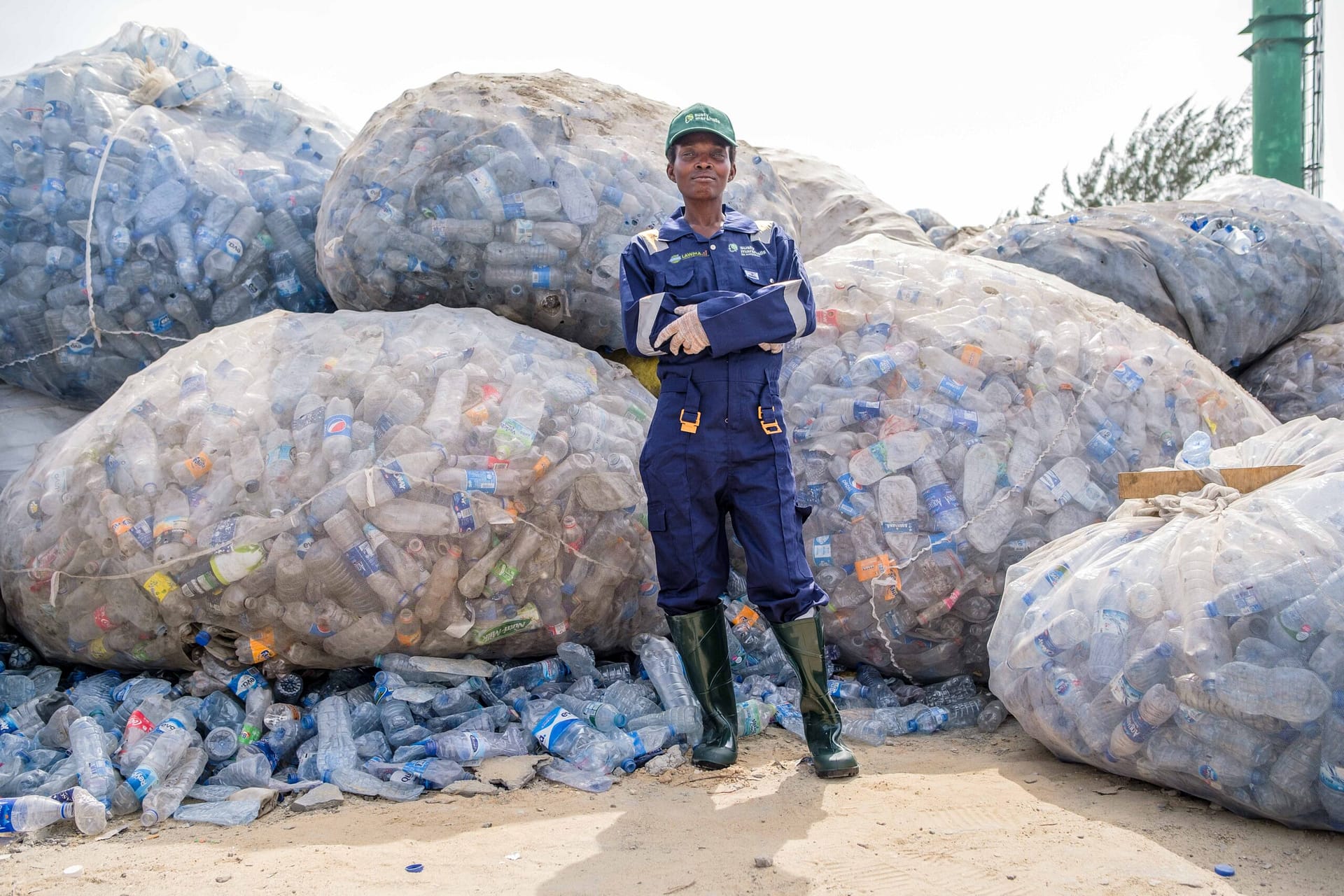
Introduction
The Susty Marshalls Project is a SustyVibes project, funded by the World Economic Forum and aimed at changing the narrative around informal waste pickers in Nigeria by supporting their welfare, restoring their dignity, and elevating their status as integral parts of the circular economy chain in Nigeria.
Phase I of the Susty Marshalls Project targeted 500 informal waste pickers in partnership with The Fair Plastic Alliance, Lagos State Waste Management Agency (LAWMA), Lagos State Health Management Agency (LASHMA), The United Nations Information Centre (UNIC) in Nigeria, The Food and Beverage Recycling Alliance, Compact Impact Foundation, Wema Bank and recycling partners such as WasteXchange, GIVO, and Wecyclers. In April 2022, the project supported waste pickers with Personal Protective Equipment (PPE), health and safety training, diagnostic health check-ups, and one-year Health insurance coverage in partnership with the Lagos State Health Management Agency (LASHMA).
Recognising the critical need for bottom-top policy interventions in driving sustainable solutions to the unique challenges faced by waste pickers, the Susty Marshalls Phase II was kickstarted. This phase seeks to enhance broader systemic changes in the welfare of informal waste pickers through the conduct of impact and needs assessments as well as stakeholder engagements geared at developing friendly policies and commitments directed at waste pickers in Nigeria. This phase will connect waste pickers with stakeholders for robust discussions on enhancing the productivity, sustainability, and perception of Informal waste pickers in Nigeria.
Following the Susty Marshalls Impact Assessment on project participants, the Susty Marshalls Stakeholders Dialogue was held on Thursday, 23rd of September, 2023. The dialogue gathered relevant stakeholders from several private organisations and associations as well as public agencies within the waste management and circular economy sector to discuss issues surrounding formalisation, safety, healthcare, and policy inclusion of informal waste pickers in Lagos, and Nigeria at large. Building on emerging themes from stakeholder engagements, the dialogue seeks to engage key sectoral players in the design of lasting solutions for policy integration and inclusion with the overall goal of improving the welfare of informal waste pickers.
Agenda
The Opening Remarks by the Director of Projects and Partnerships at SustyVibes, Tunde Lukman Anifowose, provided a brief overview of the activities of the Susty Marshalls Project and its commitment to enhancing the overall welfare of informal waste pickers.
A Keynote Address on “Formal – Informal Economy: Is mainstreaming possible in Lagos?” was delivered by Prof. Taibat Lawanson, a Professor of Urban Management and Governance at the University of Lagos. Her speech explored the possibilities and challenges associated with the integration of the informal economy in Lagos state. Pointing out the coexistence of informality and formality in urban areas across African cities, she noted the state’s decision to transition Lagos into a fully formal economy. However, she remarked that this had led to the development of an Anti-informality policy agenda and ensuing blacklisting of informal activities, which disregards the contributions of the informal sector to the state’s economy – the informal sector employs 68% of the working population, created 95.4% of new jobs in 2015, contributes 40% ($557.8m) to Lagos IGR and is valued at $48.2b. Emphasising that informality does not always equal illegality, she added that the peculiarities of informality need to be integrated into the planning and design of public infrastructure, services, and policies, and appealed that the deliberations to be put forward during the dialogue should reflect this.
The Susty Marshalls Impact Assessment measured the effects of project interventions on project participants based on project targets of Financial Inclusion, Sustainability, Health Insurance, Health and Safety, Perception, and Formalisation, and was presented by the SustyVibes Interim Head of Projects, Sonia Ugwunna. She remarked that the assessment highlighted the significant impact of the program solutions in indices peculiar to the welfare of the informal waste pickers. According to her, findings from the survey conducted on 286 beneficiaries revealed that 81% of respondents had experienced a reduction in the rate of workplace-related accidents as a result of the safety equipment and training; 56% of respondents reported opening bank accounts since the project implementation; the health insurance scheme increased healthcare access for 60% respondents; and the project activities had contributed to a change in job perception among 79% of respondents whose pride and an increased desire for formalisation among 70% of respondents*.
*Results of the Susty Marshalls Impact Assessment are discussed extensively in the Susty Marshalls Impact Report.
The Chairman of the Association of Scrap and Waste Pickers of Lagos (ASWOL), Comr. Friday Oku, provided a brief update on the association’s activities, announcing the conduct of membership registration drives across the state – a crucial first step in the formalisation process with the Lagos State Waste Management Agency. He also revealed an increased yearning for a narrative shift among waste pickers, to a messaging that recognises their contributions to waste management and circular economy. This, he noted, has fuelled their desire for formalisation and subsequent inclusion in decision-making activities of the sector.
The representative of Lagos State Waste Management Authority, Rukoyah Ogunmuyiwa, echoed the desires of the ASWOL, adding that the agency was working tirelessly with the association in the registration and formalisation process. She revealed that waste pickers were a paramount priority for the agency, which has recognised the activities of the waste pickers and is committed to their inclusion and the subsequent development of the circular economy in the state. She also announced plans to remodify the means of haulage for waste pickers, following the ban on carts.
The dialogue was divided into two breakout groups designed to foster conversations and collaboration among participants in developing strategies for the institutionalisation of health, safety, financial inclusion, and formalisation-related policies for informal waste pickers.
The Expert Group 1 on the Formalisation and Financial Inclusion of Informal Waste Pickers focused on the design of a sustainable roadmap for an efficient, inclusive, and accessible formalisation process and financial inclusion strategies. Expert Group 2 on the Health and Safety of Informal Waste Pickers discussed solutions geared at the provision of a safe working environment. It improved access to healthcare services for waste pickers.
At the end of the dialogue, the stakeholders presented findings and recommendations for policy integration and inclusion with the overall goal of improving the welfare of informal waste pickers.
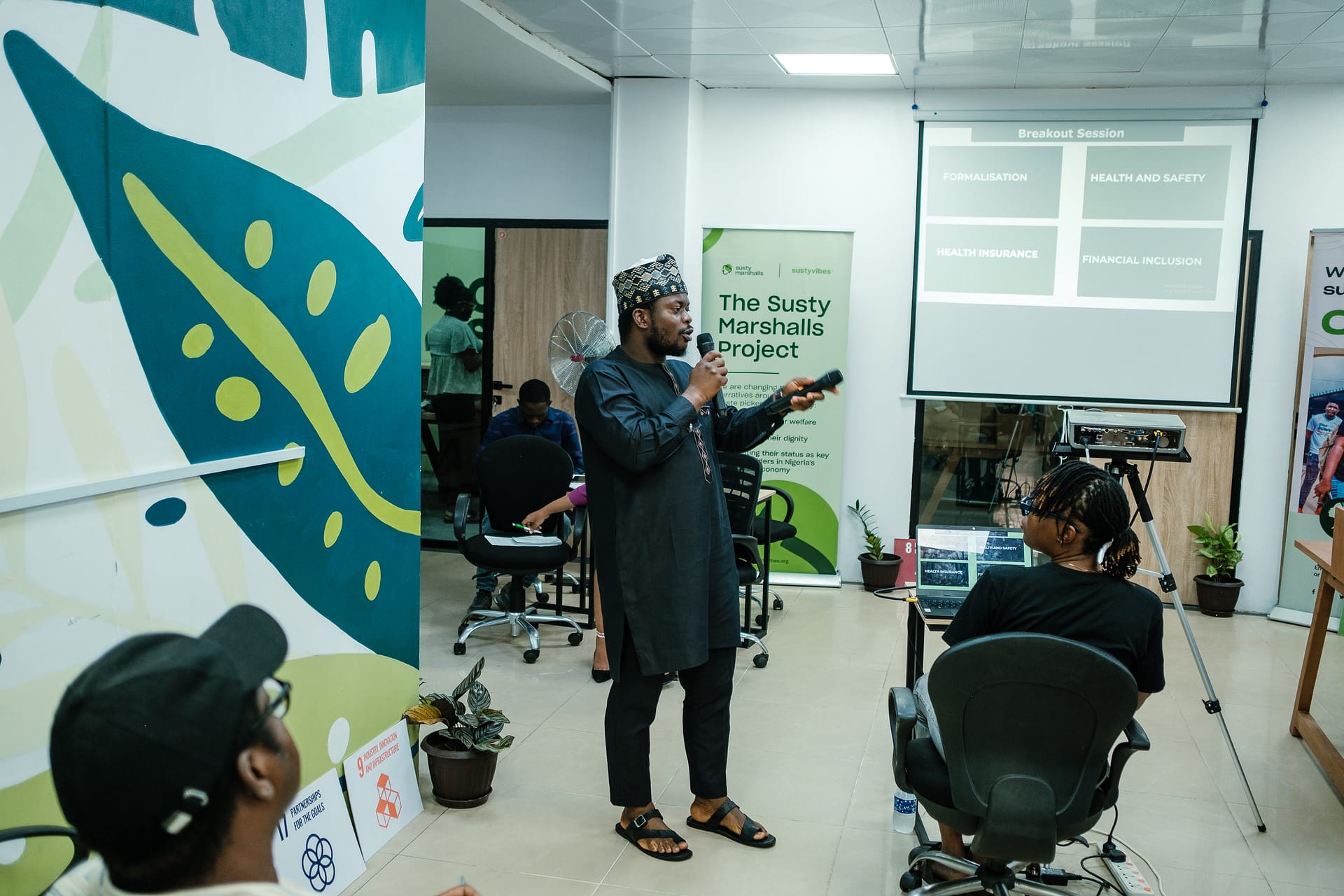
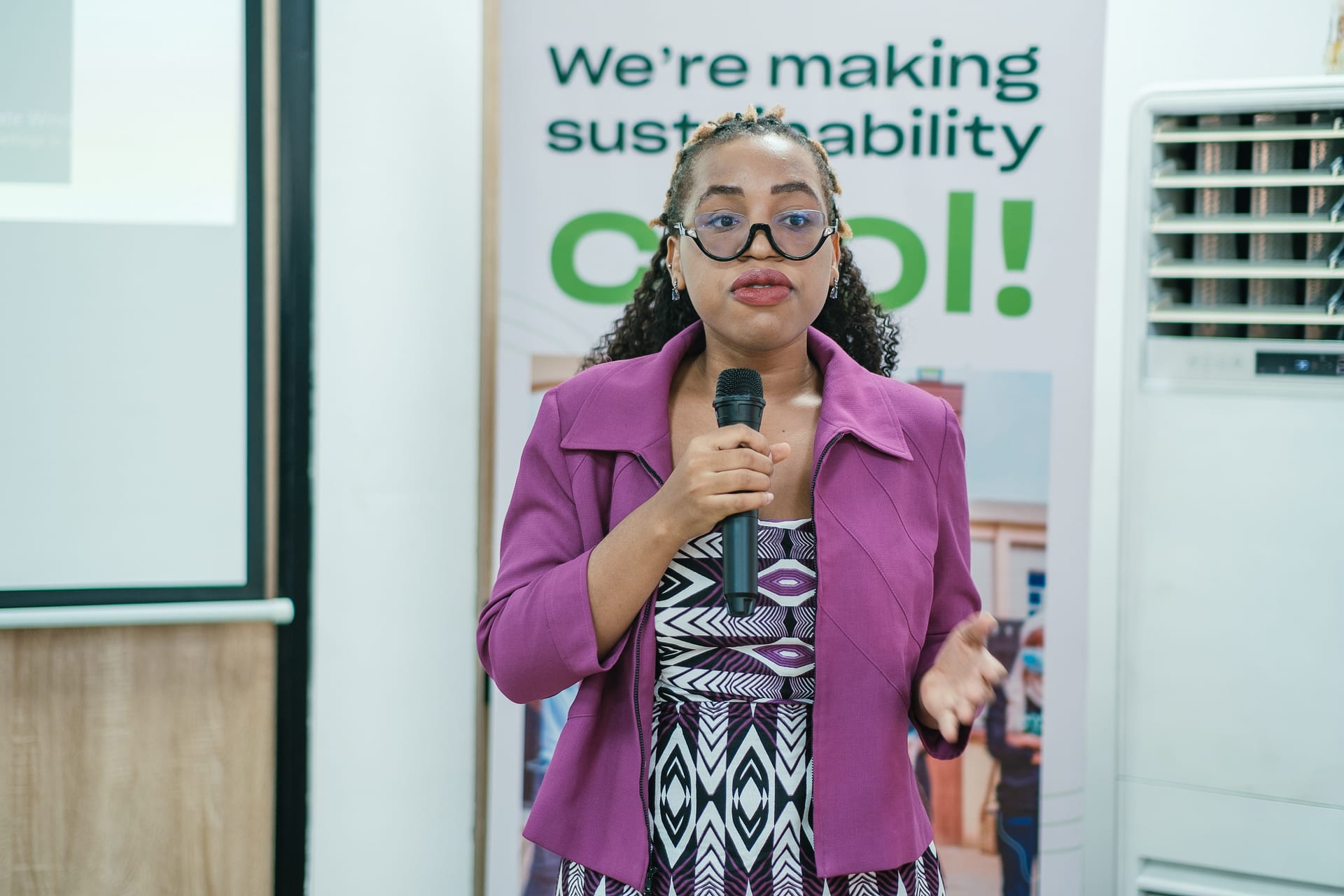
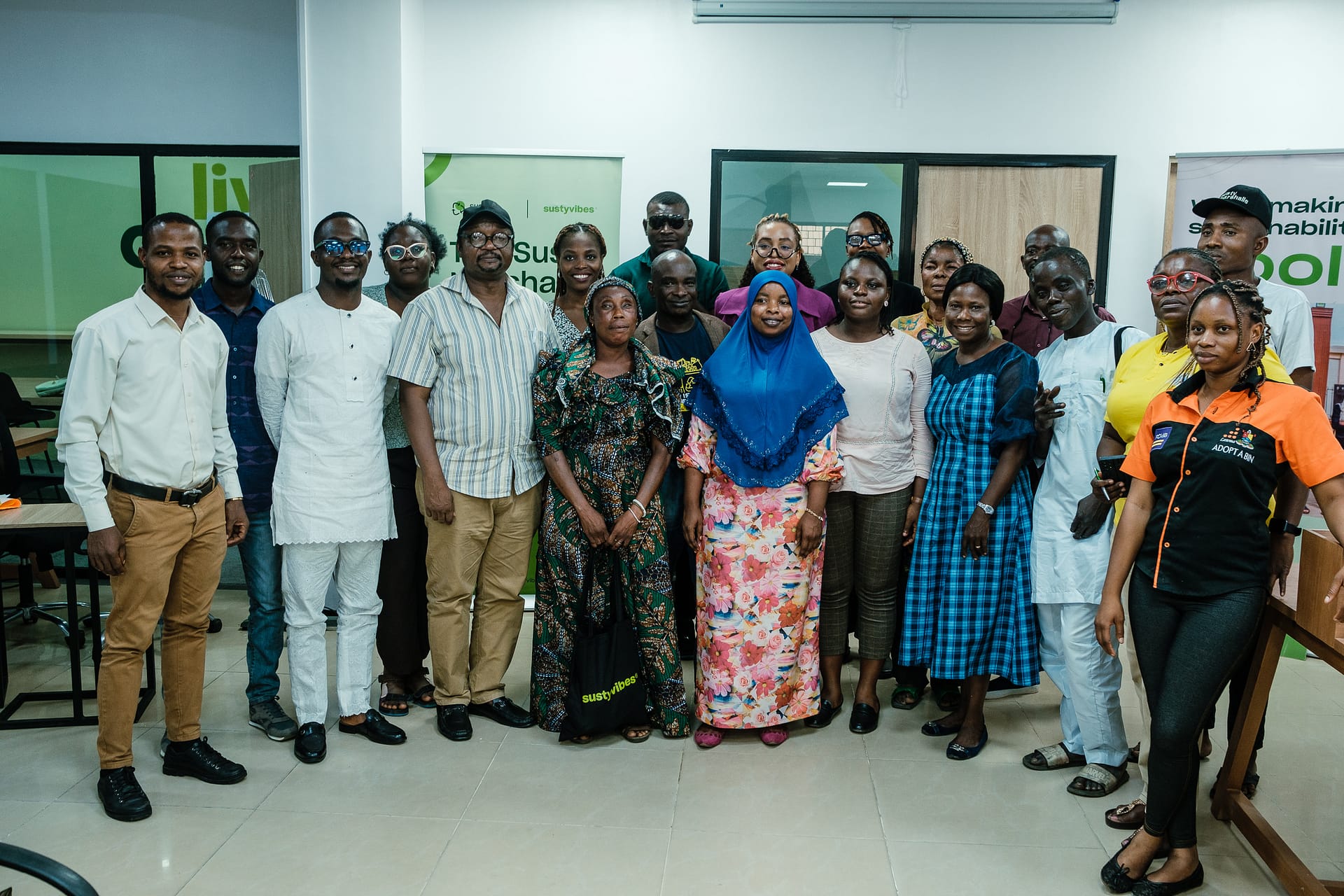
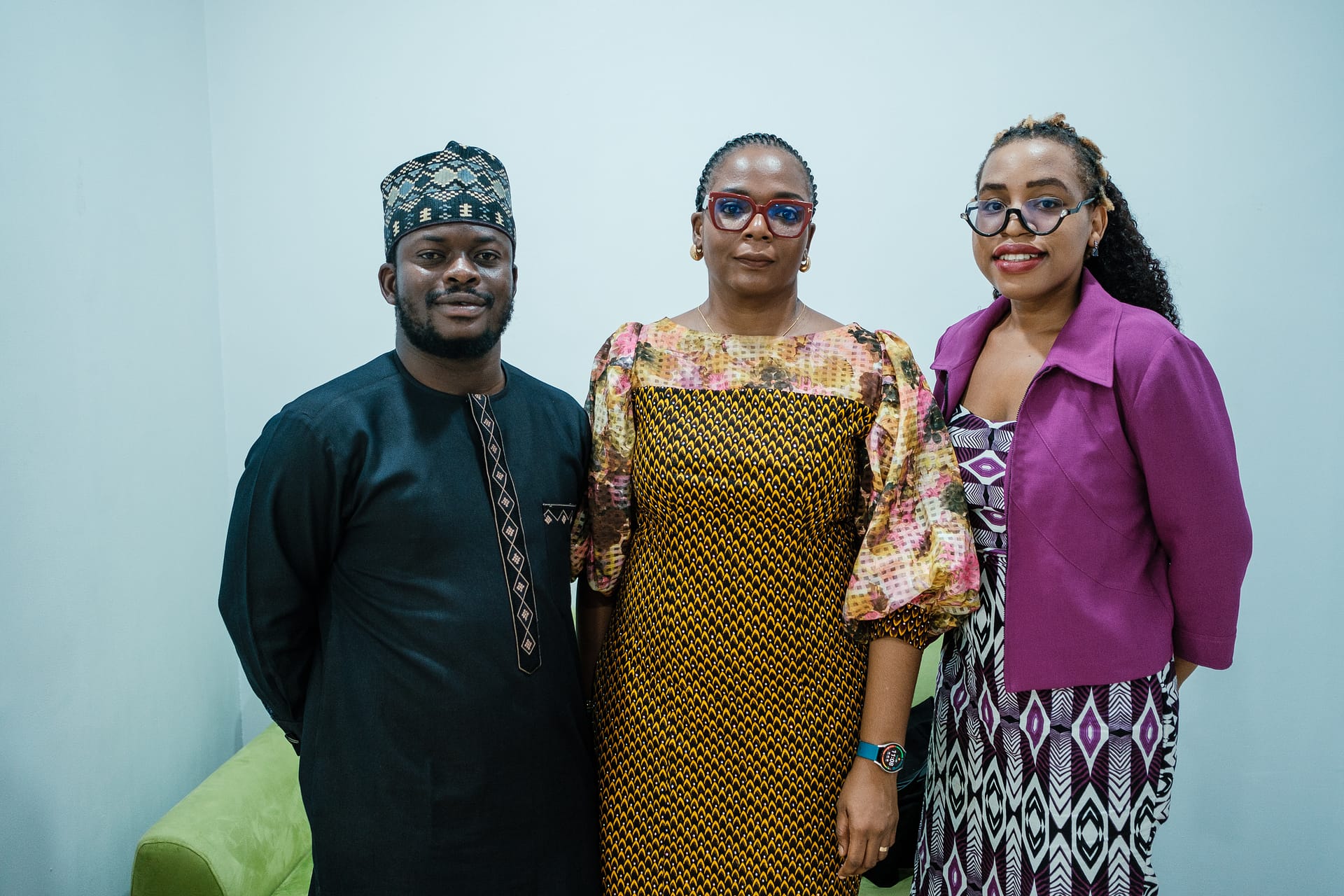
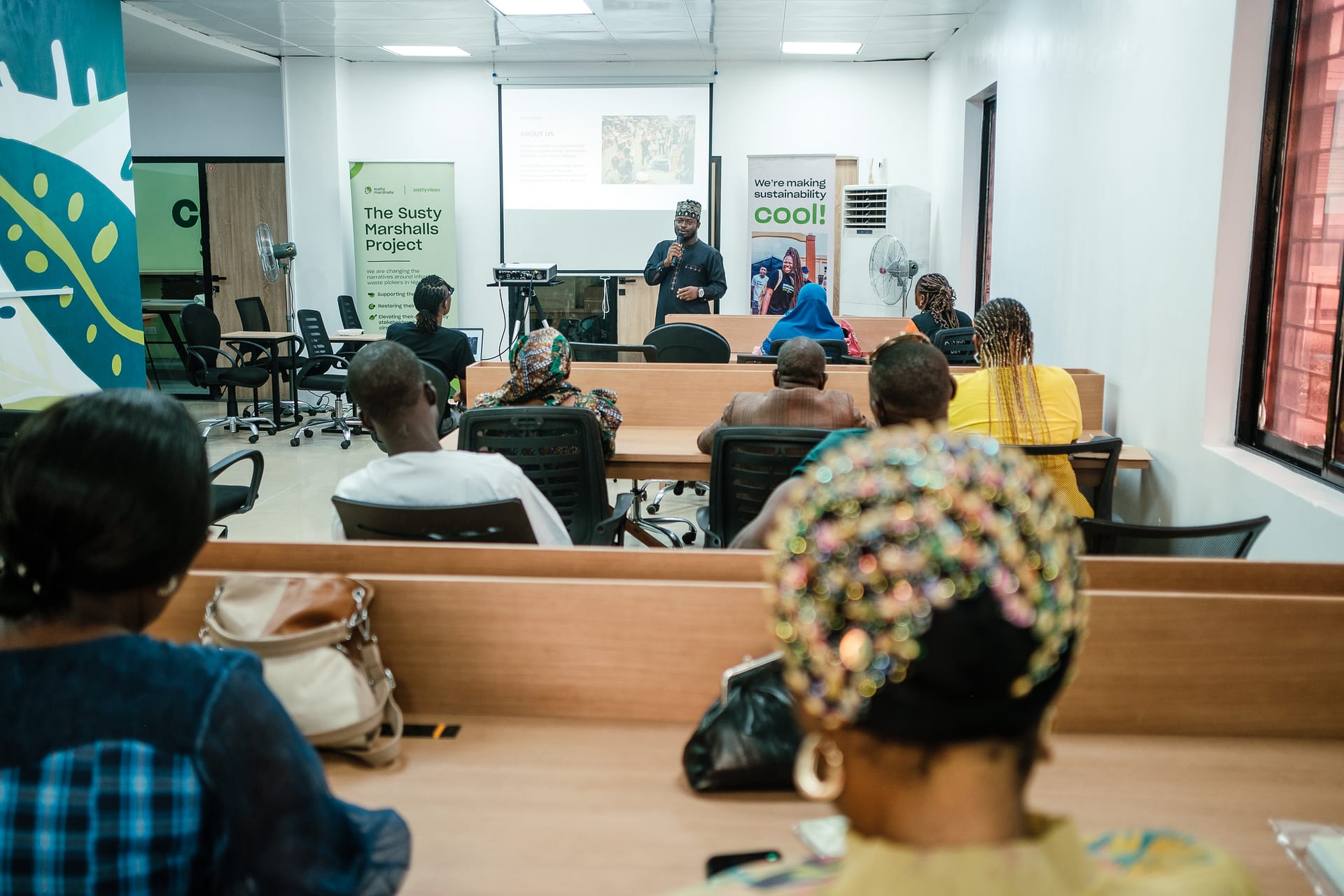
Findings and Recommendations
Formalisation and Financial Inclusion of Informal Waste Pickers
- Formalisation of Waste pickers can contribute to improved welfare of waste pickers
The formalisation of waste pickers is key to establishing the position of waste pickers in the circular economy. Formal recognition and registration will not only result in the elevation of the status of waste pickers and a shift in perception among the general populace but will also pave the way for increased access to essential services, such as healthcare, financial inclusion, security and investments from interested parties seeking to invest in government-backed developing sectors. - The formalisation process should undertake a community-led approach
The association and agency should apply a grassroots approach during the registration process from community to LGA to state level. Collaboration with local governments and council development areas will enhance the spread of the call for registrations and support the verification process of waste pickers’ identity. - Documentation is key to addressing issues around misrepresentation.
The formalisation process should include the creation of a centralised database for registered waste pickers. This will aid the identification of waste pickers and result in the removal of those who use this profession as a cover for nefarious activities. The database will be useful in ensuring welfare programs and any other benefits accrued as a result of formalisation are delivered to verified waste pickers. The database should also be periodically updated to reflect changes and capture new data on waste pickers. - Membership
Registration numbers should be provided to waste pickers upon registration to facilitate identification and tracking. Membership categories should also be explored – subcategories of Permanent and Migratory status can assist in distinguishing between short-term and long-term waste pickers - Enforcement of the Waste Value Chain and Standardized Pricing
Recognizing their role as middlemen, the exclusion of informal waste pickers from the materials recycling value chain should be outlawed. Also, there should be a provision for standardized pricing of recycling using fair market rates to prevent exploitation by recyclers and other bodies in the sector. - Increased Access to Loans and Credit Services
The formalization process should result in increased access to loans and credit services arising from their recognition by the state. More so, the state should encourage loans and investments in this sector targeted at scaling the activities of waste pickers. - Establishments of Cooperatives
Cooperatives can pull resources that enhance their ability to negotiate for loans and credit services. Waste picker-based cooperatives should be explored and recognized to facilitate the provision of small-term loans for their members. - Inclusion of Waste Pickers in Policy Making
Representatives from this community can advocate for policies that prioritise accessible and affordable work-related infrastructural and social services tailored to their financial constraints and unique situational contexts. Moreover, their inclusion can contribute to the formulation of regulations that promote occupational safety, ensuring that waste pickers are not only recognized but also protected within the legal framework. - Extended Producer Responsibility (EPR)
EPR programs should be extended to provide for waste pickers, who play a crucial role in the downstream material recovery sector. Organisations such as the Food and Beverage Recycling Alliance should consider investments aimed at improving working conditions, financial inclusion, and health and safety of informal waste pickers. - Implementation of Welfare Programs
The success of the Susty Marshalls project further highlighted the impact of social welfare programs in improving the welfare of informal waste pickers and encouraging their productivity and longevity at the workplace. Hence, there is a need for programs such as this targeted at providing incentives for registrations and formalizations for waste pickers. - Media Advocacy
There needs to be sustained awareness across social media platforms in English and local languages, on the critical contributions of waste pickers to the circular economy. Additionally, the media awareness should include messages encouraging waste pickers to register and sign up.
Healthcare and Safety of Informal Waste Pickers
- Inclusion of Health Maintenance Organization (HMO) Insurance as a standard practice.
By incorporating HMO insurance, waste pickers could benefit from a comprehensive healthcare package that covers a range of medical services, including preventive care, routine check-ups, and essential treatments. In addition, HMOs often offer cost-effective solutions by negotiating favorable rates with healthcare providers, which aligns with the financial constraints faced by many informal workers. - Establishment of Sick Bays for Waste pickers at sorting centers
Sorting centers should be equipped with dedicated accessible and well-equipped sick bays within the vicinity of waste collection sites, thereby mitigating health risks and promptly addressing injuries sustained during their work. This intervention not only prioritizes the well-being of waste pickers but also contributes to fostering a safer working environment. - Introduction of compulsory PPE usage The compulsory usage of PPE should be a standard requirement of waste pickers. This ensures a required level of protection for waste pickers, shielding them from potential health hazards inherent in their work. Concerning expense, collaborative efforts between governmental bodies, NGOs, and private enterprises could play a pivotal role in subsidizing or providing cost-effective PPE solutions
- Public-Private Partnerships for Corporate Social Responsibility
Large companies should be encouraged to play a pivotal role in supporting informal waste pickers by incorporating initiatives into their CSR frameworks. This involvement can include establishing healthcare programs tailored to the unique needs and challenges faced by waste pickers, such as regular health check-ups, access to medical facilities, and education on preventive healthcare. - Training Initiatives
Waste pickers should receive compulsory training that focuses on work ethics and professional conduct within the specific working environment of waste picking can prove instrumental in mitigating these risks. Given the nature of their work, waste pickers may encounter hazardous materials or situations that could pose threats to their safety and the well-being of others. By implementing targeted training programs, emphasis can be placed on instilling a sense of responsibility and safety consciousness, fostering a culture of mutual respect and cooperation. However, this training should not incur additional financial burden on waste pickers. - Synergy and Collaboration
Ensuring the health and safety of informal waste pickers involves a collaborative effort among waste management authorities, the private sector, and other stakeholders. Waste management authorities bear the responsibility of implementing robust sensitization programs to educate waste pickers on potential hazards and safety measures. Concurrently, the private sector should play a pivotal role in providing adequate security on the ground, safeguarding waste pickers from potential risks during their work.
Next Steps
- The Association of Scrap and Waste Pickers of Lagos (ASWOL), in collaboration with relevant key partners, will intensify the registration process of their members across the state.
Supported by:
